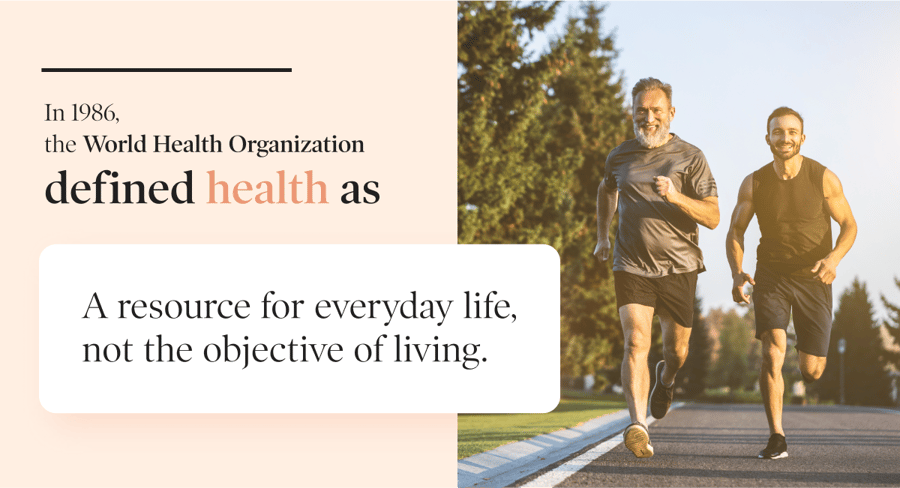You don’t have to be a fitness buff to preach the power of regular physical exercise. Moving our bodies feels great in the moment and delivers a ton of preventative and accumulative health benefits in the long run:
-
It regulates stress hormones. Physical exercise helps keep stress hormones – like cortisol and adrenaline – in check, which improves overall mood and sleep quality. Aerobic exercise, like brisk walking, swimming, or cycling, also boosts endorphins, the feel-good hormone.
-
It boosts self-esteem. Regular physical activity positively influences how we perceive our behaviours and abilities: when we make the effort to move daily, and we see improvements, we often feel proud of our achievements.
-
It improves your immune system. Physical activity is especially effective against the common cold: exercise can flush out flu and cold-causing bacteria from the lungs.
-
It enhances cognitive function. Exercise positively impacts memory and thinking. In fact, people who exercise regularly tend to have a larger hippocampus, amygdala, and cerebellum – the parts of the brain responsible for memory and thinking.
Despite all these benefits, making movement a priority is not always easy. Exercise often takes a back seat when you’re juggling family, work, and other commitments. But a simple shift in mindset can make physical activity feel like an integral part of daily life, instead of a burden. Here are 4 tips to achieve meaningful behaviour change, make incremental improvements, and prioritize daily movement.
Focus on getting healthier over healthy.
What does it mean to be “healthy”? When it comes to flexibility, power, speed, stamina, agility, strength, cardiovascular endurance, mindfulness – or any other indicator of physical fitness – we all have our own unique starting point. This means that achieving health looks different and means something different for everyone.

Health is not a final destination, but rather an ongoing journey with continuous opportunities for improvement. By grounding your journey in feeling better, getting stronger, moving more easily – or whatever your goals may be – you can make meaningful progress.
Here are a few ways to shift your mindset away from a one-size-fits-all approach to fitness, toward a personal change-focused approach.
-
Identify ways in which you can feel mentally and physically better over time.
-
Take small, manageable steps every day and celebrate your progress.
-
Notice how you’re getting healthier compared to before:
-
You can play with your kids without getting as tired as you used to.
-
You find it easier to pick things up or carry things around.
-
You feel more energized throughout the day.
-
You have coping strategies to help you manage daily stress.
-
Focus on effort over ability.
Respect your limits and what your body can do for you. Instead of focusing on mastering a specific skill or ability – and consequently feeling discouraged if you’re unable to do something, – focus on the work you're doing to achieve that goal. For example, you might not yet be able to run continuously for 30 minutes, but you can run a few minutes at a time and walk in between.
When you’re not feeling as strong, as fast, or as capable, remember to highlight what you are able to achieve that day. Here are a few ways to know if you’re putting in the effort:
-
You feel some level of discomfort during your workout, but no pain.
-
You feel energized, but not completely wiped out.
-
Over time, you notice that you can do more with less effort.
Focus on action over outcome.
Outcomes are key long-term success indicators, but focusing on simple and effective daily actions makes achieving longer-term goals less daunting. Goals can be strong motivators to keep you moving. However, your daily actions matter just as much as the goals you reach.
Here are examples of daily actions that make a difference and help you get closer to your desired outcome:
-
You go for daily walks in preparation for an intense hike this summer.
-
You stretch every day to increase your mobility, so you can safely squat heavier.
-
You take virtual dance classes to be able to play with your grandkids more easily.
-
You do breathing exercises after work to help reduce chronic stress.
Focus on lifestyle over routines.
Achieving a fitness goal often requires some discipline. Unfortunately, sticking to a specific routine can be a challenge in itself, especially when we feel forced to do something. Long-lasting behaviour change is only possible when we find workouts and activities we actually enjoy, instead of giving ourselves strict rules to follow.
When it comes to your physical fitness and health, prioritize sustainability, accessibility, and joy. Going to the gym for an hour each day may not be sustainable for everyone. Luckily, it’s not the only way to benefit from daily movement. Find easy and enjoyable ways to fit exercise into your life, and adapt when you need to. Some days, you might go for an intense hour-long yoga class, and on other days you might follow a shorter, gentler at-home virtual session.
Here are some simple signs that you’re making positive behavioural and lifestyle changes, without hard-and-fast rules:
-
You make time to move regularly, whether it’s one hour or 10 minutes.
-
If you miss a workout, you don’t feel guilty.
-
You’re excited to move your body in different ways.
Why daily movement matters at Dialogue
We believe that prioritizing well-being before serious issues arise is crucial. This is why preventative care is at the heart of Dialogue’s health and wellness programs. Our virtual care app makes it easy to manage your physical and mental health issues whenever you need to, before things get worse.
Now, with the acquisition of global wellness platform, Tictrac, we aim to expand our wellness offering. By including a variety of content to support members of all health and fitness levels – including physical and mental fitness videos, expert articles, and step-by-step action plans – we can help you manage your health proactively and preventatively. Stay tuned to learn more!
Keep prioritizing physical and mental well-being through the Dialogue app.
Sources:




 Canada (EN)
Canada (EN)
 Global (EN)
Global (EN)








